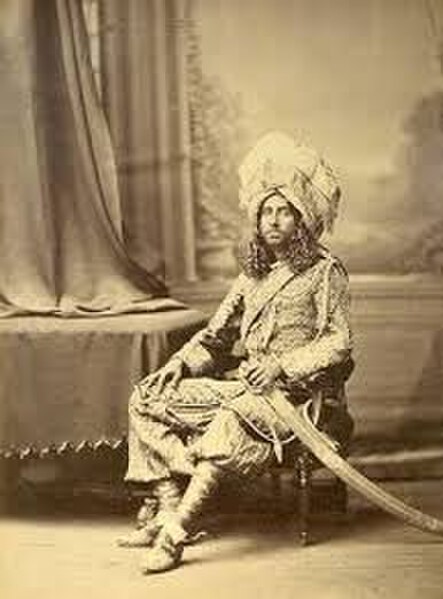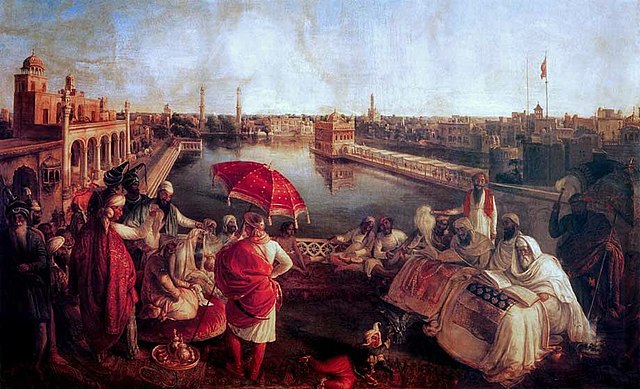The Jat people are a traditionally agricultural community in Northern India and Pakistan. Originally pastoralists in the lower Indus river-valley of Sindh, many Jats migrated north into the Punjab region in late medieval times, and subsequently into the Delhi Territory, northeastern Rajputana, and the western Gangetic Plain in the 17th and 18th centuries. Of Hindu, Muslim and Sikh faiths, they are now found mostly in the Indian states of Punjab, Haryana, Uttar Pradesh and Rajasthan and the Pakistani provinces of Sindh and Punjab.
Jat Zamindars. Hindoos. Rajpootana 1874
Jat Sikh of the "Sindhoo" clan, Lahore, 1872
The Hindu Jat Maharaja of Bharatpur, 1882
Jats in the Delhi Territory in 1868.
Sikhs are an ethnoreligious group who adhere to Sikhism, a religion that originated in the late 15th century in the Punjab region of the Indian subcontinent, based on the revelation of Guru Nanak. The term Sikh has its origin in the Sanskrit word śiṣya, meaning 'seeker', 'disciple' or 'student'. According to Article I of Chapter 1 of the Sikh Rehat Maryada, the definition of Sikh is: Any human being who faithfully believes in
One Immortal Being
Ten Gurus, from Guru Nanak Sahib to Guru Gobind Singh Sahib
The Guru Granth Sahib
The utterances and teachings of the ten Gurus and
The initiation, known as the Amrit Sanchar, bequeathed by the tenth Guru and who does not owe allegiance to any other religion, is a Sikh.
Maharaja Ranjit Singh listening to Guru Granth Sahib being recited at the Golden Temple, Amritsar
Harpreet Kaur Chandi, a British Sikh and the first woman to reach the South Pole solo and unsupported
Jagmeet Singh, Canadian Sikh politician
American Sikhs








